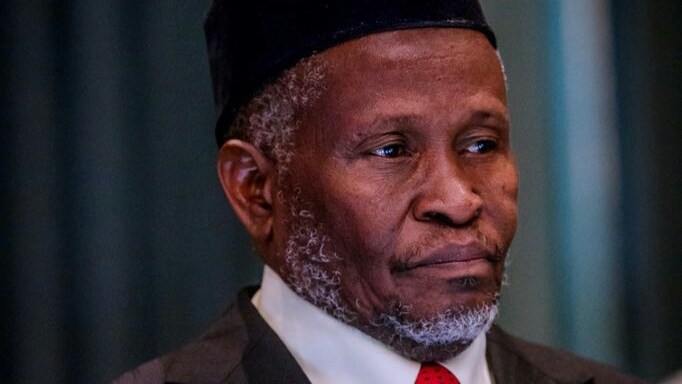With new challenges to the administration of justice in Nigeria posed by the novel coronavirus pandemic, suggestions are being put forward on how to strengthen the country’s justice sector.
Leading this charge is the Centre for Socio-Legal Studies (CSLS), which has outlined measures needed to be taken to bring Nigeria’s judiciary to perform efficiently.
The president of the centre, Professor Yemi Akinseye-George (SAN), a leading voice in the call for the reform of the legal and justice sectors, outlined the measures in a release titled ‘Towards Justice Sector Improvement post-COVID-19’.
- COVID-19: Decongestion of Correctional Centres too slow – Lawyers Alert
- Criticisms trail Buhari’s directive on appointment of new S/Court justices
Following the retirement of Justice Paul Adamu Galinje on April 21 from the Supreme Court bench, the apex court has been further depleted to only 12 justices, wherein the law provides for 21 justices on the bench.
Responding to this, Prof. Akinseye-George posited that the need to fill all the vacancies in the Supreme Court has never been more urgent.
“This will enable the reduction of the backlog of appeals. With a full complement of 21 justices, three or more panels of the court can be sitting in turns. All non-contentious applications such as those seeking leave for one thing or the other should be taken in chambers or via video conferencing,” he added.
He also suggested that the four recently-appointed justices to the bench (Justices Emmanuel Akomaye Agim, Adamu Jauro, Helen Morenkeji Ogunwumiju and Samuel Oseji) should be allowed to commence work immediately even if in an acting capacity, adding that “this is an extraordinary response to an extraordinary situation and unjustified delay of their confirmation.”
“The last time the Supreme Court was this depleted was probably during the General Abacha era,” he said.
Another suggestion put forward for the efficiency of the judiciary was for the constitution to be amended to limit the variety of appeals that can be taken to the Supreme Court.
“For example, matters of dissolution of marriage, customary law disputes devoid of constitutional contents and other such matters should no longer go beyond the Court of Appeal,” the senior advocate said.
Improved welfare or working conditions for judges is also another measure suggested for the optimisation of the justice sector.
Several judges have been on the same salary scale for several years, Prof. Akinseye-George said, adding that this is an indirect way of reducing their salaries which is tantamount to a violation of the constitution.
“It is also an indirect interference with the independence of the judges. There is no gainsaying that judges do important and extremely sensitive work,” he added.
In the same breath, an improved retirement package, he said, would go a long way to put judges’ minds at rest and make them perform their duties without worrying about their future.
“A judge retiring at the age of 65 or 70 should have no worries about where to live after retirement. It is a national shame that several justices, including those retiring from our highest courts, have no decent accommodation in retirement,” the CSLS president said.
He also appealed to President Muhammadu Buhari to accelerate the confirmation of the appointment of the Acting President of the Court of Appeal, Justice Monica Dongbam-Mensem, so as to ensure the institutionalisation of the innovative and proactive measures being implemented by the court under her leadership.
Justice Dongbam-Mensem’s name and those of three other justices acting as heads of courts and 66 other judicial officers were recently recommended to President Buhari for appointment.
Also speaking, Barrister Hameed Jimoh suggested “that having understood the cogent facts that Nigeria has not grown to the level of online court system because of lack of necessary tools that will make it work, such as electricity and information technology, the judges also have a part to play by ensuring that they avoid unnecessary delay in handling cases.”
He added that in this regard, “long adjournments of cases make the situation worse and their cause lists long. So, they should avoid the same.”
Buttressing this point, Lagos-based human rights activist, Barrister Inibehe Effiong, said the judiciary can function in a limited form if certain logistics are put in place.
“The courts can decongest their cause list by reducing the number of cases that are listed for mention and hearing.
“The heads of courts can also issue practice directions that will enable the hearing, grant, or refusal of non-contentious applications in chambers or through technological devices like Zoom.
“For example, motion for leave to file a process out of time can be considered in chambers or by Zoom, especially if it is not opposed,” he said.
He added that judges should be able to regulate the number of counsel that can appear for litigants in a suit just as the Supreme Court has recently directed that it should be a maximum of five lawyers.
“There is no reason why more than two lawyers should appear for a litigant in a matter during this period. This can also limit the likelihood of the spread of COVID-19,” Barrister Effiong added.
The consolidation of all these measures and others as suggested by several other stakeholders are believed to be capable of strengthening the judiciary in Nigeria.

 Join Daily Trust WhatsApp Community For Quick Access To News and Happenings Around You.
Join Daily Trust WhatsApp Community For Quick Access To News and Happenings Around You.


